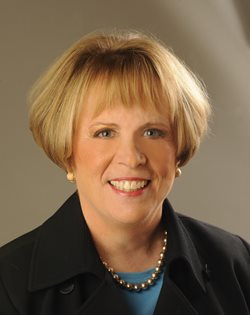
©undefined undefined/iStock/Getty Images Plus
Karen Kane serves as the CFO of one of the oldest charities in Chicago. And though she’s been involved with Marillac St. Vincent Family Services for over 20 years, serving as Chair of the Board of Trustees and Chair of the Finance Committee, her financial career was primarily with publicly-held Fortune 500 international companies. The shift is not always an easy one and Kane has some advice for other financial executives looking to make the leap.
FEI Daily spoke with Kane, a recent recipient of the FEI Chicago CFO of the year award, about making the shift and the unique challenges senior-level financial executives face in the non-profit space.
FEI Daily: Prior to joining Marillac St. Vincent Family Services, your financial career was with primarily with publicly-held Fortune 500 international companies. What was the shift to a non-profit like?
 Karen Kane: The shift is that you move away from a profitability focus to a focus on purpose. There's a balance. In the corporate world, the balance is definitely toward profitability. The balance in the non-profit world is very much focused on not only the people we serve, but fairness to our employees as well. That's a very dramatic difference.
Karen Kane: The shift is that you move away from a profitability focus to a focus on purpose. There's a balance. In the corporate world, the balance is definitely toward profitability. The balance in the non-profit world is very much focused on not only the people we serve, but fairness to our employees as well. That's a very dramatic difference.
Every decision that we make is evaluated whether or not it's consistent with the mission. Our operating philosophy is that we do not balance our budget on the backs of our employees. We never eliminate raises or reduce contributions to retirement plans. We're very focused on fairness.
At the same time, we have to look at efficiency and effectiveness, and we need to be good stewards of the money that our donors have given us. We're very focused on sustainability. We talk a lot about our very rich 100-year history and, in order to have another 100 years, we need to be sustainable and have some prudent fiscal management.
One surprising similarity is that we are focused on measurements. The non-profit world is becoming more and more responsive to our donors and some of our foundations want to know what our outcomes are and the impact that we're having on the people's lives that we serve. I worked with the chief operating officer to install a new IT system for metrics, so nothing to do with the general ledger or accounts payable, accounts receivable, or any of the typical financial metrics, and we are now capturing data to help us identify the impact that we're having as well as identifying ways that we can improve ourselves.
We belong to a collaboration of other charities where we share all of our metrics so that we can learn from each other. That leads me to one of the other big differences. In the for-profit world, we didn't share inside information with other organizations that ‘competed’ against us. You can use industry data, but you would never get together with five or six people who are in the exact same business that you are and share your data.
In the non-profit world, it is very clear that we want to help each other do better. We care about the bigger picture of making the world a better place.
FEI Daily: As CFO, you guided the implementation of new accounting systems – can you tell me about the challenges you faced?
Kane: One of my first large projects when I came on board was to restructure our legal entities. We are a merger. We had three different entities that came together to form the organization that we have right now. Once we changed the ownership of different assets and which programs were in which legal entity, then we were in a position where we could simplify. Are there three separate databases? Three separate accounts? Three separate bank accounts? Three separate balance sheets?
Once the legal merger combination took place, we were then able to consolidate all of those different databases into one. We followed a fairly traditional. We did a detailed needs assessment. We brought in our public accounting firm and they helped facilitate the discussions to identify the needs that we have. We have a lot of government grants. We have federal grants, state of Illinois grants, city of Chicago grants. We have multiple foundations, all of which have different reporting requirements. Our needs assessment had to consider all of those different funding streams. We needed to have flexibility at the same time as needing structure in order to comply with all the GAAP and 990 rules. We probably spent half of our time on the upfront planning and then the other half of the time planning and assessing and then doing the actual implementation.
FEI Daily: What advice would you give to someone who is looking to transition to the non-profit space?
Kane: I think there is always a need for non-profits to have people on their board, whether it’s their board of trustees or their finance committee. Being on an organization's finance committee or board is a way to really learn about the organization, learn what their challenges are, and know whether or not there's a fit and whether or not your background will help you solve their problems.
Before you even go on a board, though, the advice that I give people is to find your passion. Find something that moves your heart in a certain way. Some people prefer to work with seniors. I know one person, a good friend of mine, who spends a tremendous amount of his time on homeless issues. I know someone else who really is into pet shelters. Whatever it is that moves you is what you have to find and then start looking at organizations that are in that space. You can just usually find someone you know who's already on the board.
I think the first step while you're in the for-profit world, in the corporate world, is to volunteer or get involved.